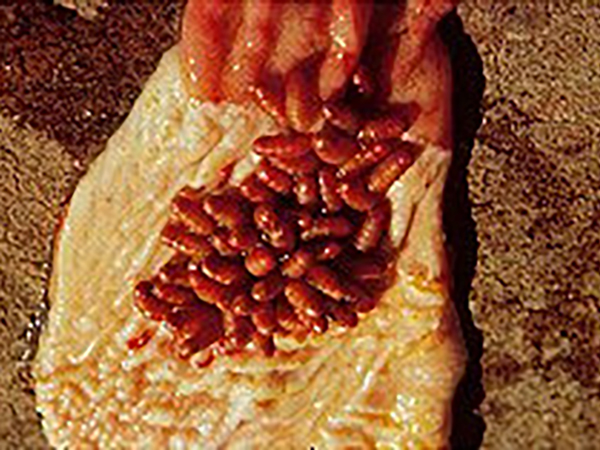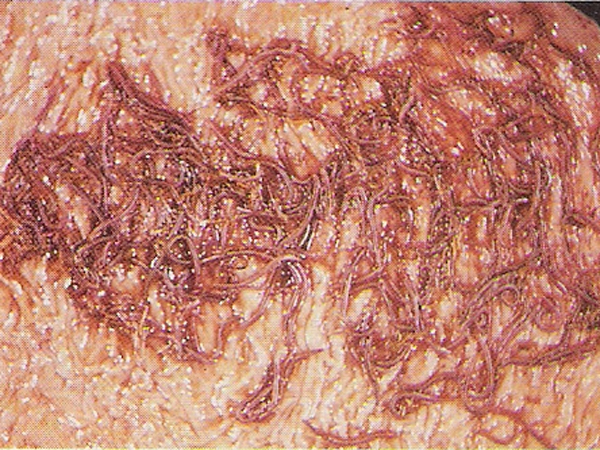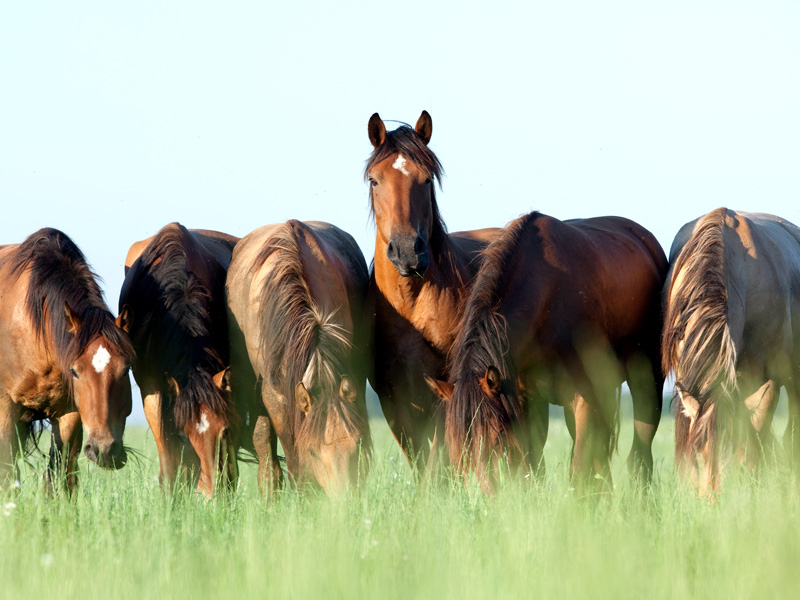Worm infestation in horses can cause various health issues, including tail rubbing, a poor/dull coat and weight loss inability togain weight. In more severe cases (ie. when left untreated), anemia, diarrhoea and even serious colic can result. Worm control is therefore a crucial part of horse ownership.
What are the most common species of worms seen in horses?
- Large strongyles/bloodworms (Strongylus spp.)
- Small strongyles (cyathostomes)
- Ascarids/roundworms (Parascaris equorum) – typically found in foals
- Tapeworms (cestodes)
- Bots (Gasterophilus spp.)
- Pinworms (Oxyuris Equi)

Bots (Gasterophilus spp)

Large Strongyles
How do we control worms?
Manage the pasture
- Picking up manure from paddocks
- Rotating paddocks
- Resting paddocks
- Reducing number of horses per acre
- Feed up off the ground (ie. Hay feeders)
Faecal Egg Counts
Faecal egg counts allow diagnosis of parasite burdens, which, in turn helps to gauge the effectiveness of your worming program. This also prevents unnecessary worming, thereby reducing the risk of development of resistance.
Worming your horse
There are several different chemical groups used in equine wormers. It is recommended that chemical groups be rotated every 12 months to prevent or slow a build-up of resistance in worms to a particular drench ingredient. The following table is a guide to worming horses which are 12 Bots (Gasterophilus spp) Large Strongyles months old or over.
| Season | Targeted Parasite | Action | Suggested Active Ingredient in Wormer |
|---|---|---|---|
| Summer | • Summer Sores • Strongyles | Perform Faecal Egg Count, or just worm | Oxfendazole, pyrantel |
| Autumn | • Summer Sores • Strongyles • Bots • Tapeworms | Always worm | Ivermectin, moxidectin, praziquantel |
| Winter | • Stronglyes (and emergence of larvae) • Threadworm | Faecal Egg Count | Ivermectin, moxidectin, praziquantel |
| Spring | • Tapeworm •Strongyles (and emergence of larvae) • Threadworm | Always worm | Oxfendazole, pyrantel |
The above table is a guide only. To formulate a program that is suitable for your property, it would be best to contact one of our vets.

